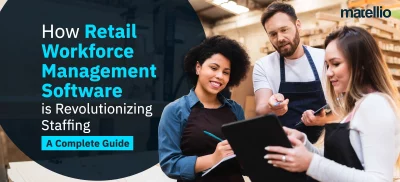
How many of you have ever stopped at Walmart stores and noticed how giant the retail stores are equally great deals they offer on every product? Consider this- undoubtedly, Walmart has more than 7 million items for sale. Moreover, like every retailer, Walmart is trying to make it more comfortable as well for the employees and their customers what they need in a fast, quick and convenient way. Therefore, take the shopping experience to the next level.
Let’s see what the new changes and additions did the retailers make that has the market buzz!!
What Is A Retail App?
Hey, It’s mind-blowing. As a few years ago it’s been said that the increase in the smartphones would exceed the toothbrushes- fact or friction, who knows, but now we got a mobile app for retail shopping. Why do you think more and more apps are developing and even retailers are going mobile? Of course, everyone is smartphone holics nowadays. And let’s not deny the fact that we love facts and digits. A retail app is a mobile application that facilitates and enriches the in-store shopping experience and improves the purchase process. You see, retailers can now run their business at customers fingertips. Use of mobile retail apps has enabled many people to process payments for their stores while keeping the records safer than ever before.
“Prominence Enjoyed By The Retail Mobile Apps”
Earlier, the mobile session growth was 6% only, but the shopping apps usage was up by 54% in the year 2017. According to statista, 80% of the customer in the U.S. is already having one mobile retailer application on their smartphones. Hence, it is clear that retail customers are continually getting comfortable with the purchases they pursue through smartphones. We all can notice how the mobile revolution has shaped the way retailers can interact with their users. Users don’t need to wait for the printed materials for advertising discounts and offers when they can do it more efficiently via the mobile app. Consumers who have used retail mobile apps earlier, find it comparatively easier in comparison to shopping in the stores or via websites. Therefore, it is time that you launch your retail app for your business by hitting the home screen of your customers’ smartphones soonest possible before your competitors grab your customers.
Why Do We Need A Retail Mobile App?
The retail mobile apps played a critical role ever since in bridging the gap between physical and digital commerce. Moreover, not only this but they also enable fast and convenient buying and has been considered a vital platform for interaction between the retailers and customers. According to the researchers, it has been evident for several years that everything is going mobile. Because of this, the entire retail community has started noticing the changes and growing trends regarding retail apps. From big brands to medium-sized as well as small retailers are putting their efforts to engage their potential customers to rise the in-store traffic by using a mobile app.Via mobile apps, consumers can compare costs and prices, goods, and other buyers reviews using smartphones.
Through the points written below, we can say that this is working
- Thirty-per cent in shop purchases are made through the retails app.
- The customers prefer to shop in those stores which support them with a mobile app, instead of preferring those who don’t.
- The customers look forward to using features such as product customization or price checker.
- More customer agrees that they prefer spending more time in retail shops with mobile apps.
- Most of the customers agree that they readily pay more when granting access to more advanced features like Augmented Reality (A.R.) preview.
Renowned Players In The Retail Apps
As a business owner, you are juggling with multiple functions- and you are always on the go. The mobile apps help you keep up with the crucial aspects of your business. Around one-third of the U.S. population visits the stores of this company. Around every week. Any guesses?? Well, yes, it’s a Walmart!! The Walmart, mobile application allows the customer to shop smart- to plan shopping trips, facilitates price checking in-store.Also assists the reorder function, i.e., you can reorder everyday essentials as well. Users can link a credit card to the app, to scan the barcode to review the prices in one go, refill and transfer prescriptions from another pharmacy to Walmart, etc. Here are some examples:
1. Sephora Retail App
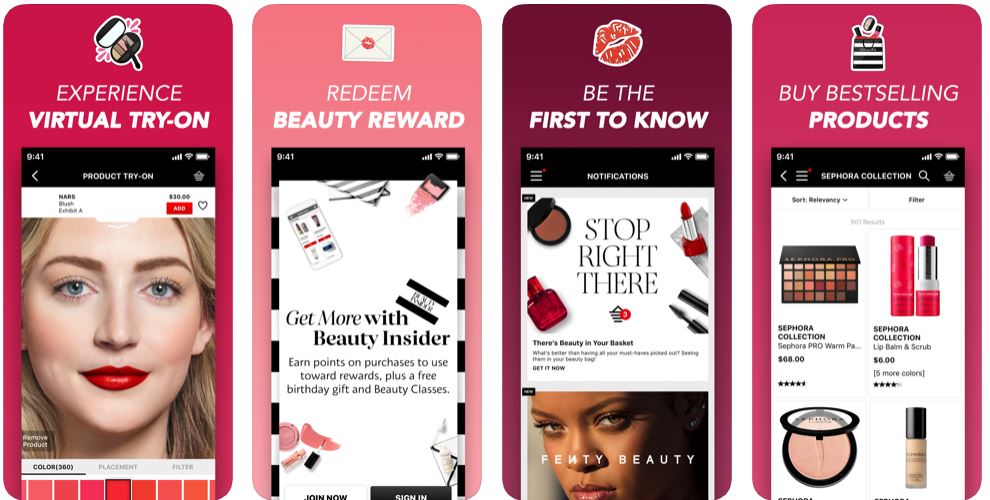
Image Source
It is basically a cosmetics retailer and it has found through market researches, that their customers often search for the products, check reviews and recommendations directly from their smartphone in the store. Also, taking into consideration this data, Sephora launched its own Sephora retail mobile app, that provides shoppers with customers reviews on products and services offered to them, including beauty tips, virtual products, try-on for eye, cheeks, lips and eye makeup and many more.
2. Ikea AR Retail App
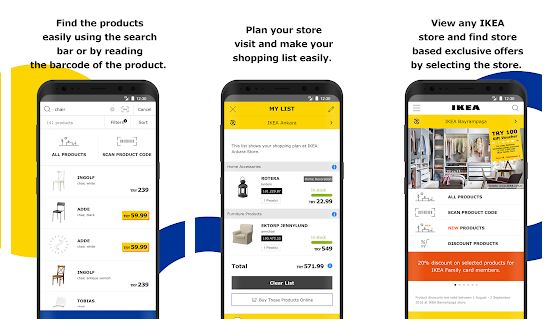
Image Source
It has opened up the new horizons for customers with Augmented reality app. The Ikea place enables us to place the virtual copies of the furniture in the home, space: “arrange, sofas, tables, etc. Allows the user to check how a particular product looks in the interior of his house, and purchase it.
3. Starbucks Retail App
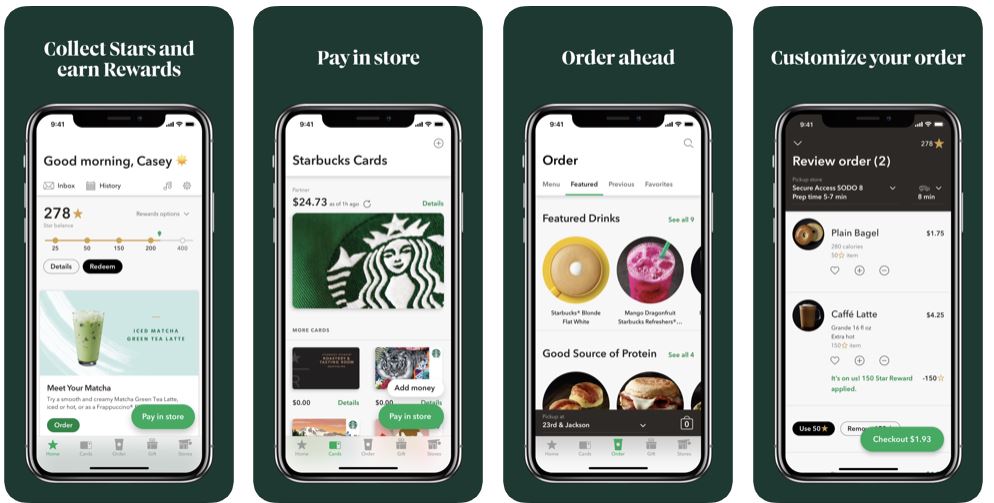
Image Source
Let’s talk about one of the best examples in retail apps, “STARBUCKS”, the app makes 21 per cent of the entire profit of the firm and which is equal to dollar 6 million. This functions on the simple idea that is; to pay before you come for your coffee. This makes it easy for the customers as they don’t have to wait for long and stand in queues for coffee. This led to an increase in the potential traffic to Starbucks from all over the world. So, here are Walmart, Sephora, IKEA, and Starbucks, some of the examples, for the successful retail stores. And what do you think, what things do they have in common? Can you guess?They have their smartphone applications. Also, through this, they can always keep track of their potential customers and the growth in their sales.
Benefits Of Mobile App For Retail Businesses
1. Mobile app helps you to reach a wide range of audience
The retail app can help you reach your customers worldwide in a personalized way. No matter if your targeted audience is living in a different city, state or nation. Your ROI will see a significant improvement, as you can target a bigger market via your dedicated mobile app to sell your product.
2. Make your business 24 hours available that too automated
One of the most cooling benefits of having a dedicated mobile app solution is that it enables you to keep your business open for 24×7. The retailer mobile app also makes your online app completely automated, so that you don’t have to supervise any of your transaction that happens through your mobile app. Through automation, you can offer services to your customers’ in a better way with newer technologies like virtual assistants and chatbots, which is going to improve your customer numbers.
3. Improve your sales and profit
The online market research shows that using a dedicated eCommerce mobile app for the company can improve its sales pitch significantly. Moreover, improved sales would ultimately improve your profit, so your dedicated mobile app will be of great help in improving your balance sheet.
4. Easier to add advanced technology to your retailer app as compared to a physical store
In case you want to introduce new technology to your retail business, then it is much cheaper to do so in a retail app when it comes to a physical store. You see, introducing new technology in any brick and mortar store needs a massive change which also includes a considerable cost.
5. Customer Experience
According to the customer experience and retail trends of 2019, customer experience is the current year’s primary focal point, for retailers all across the industry. Customer is a king, 80% of the organizations are expecting CX to be their major competitive differentiator in 2019.
6. Augmented Reality
The advantages provided by Augmented Reality for retail are substantial and will continue to grow as A.R. has become most common in everyday lives. One of the significant benefits of retail-mobile applications over a mobile site is that they have the processing power to enable complex A.R. experiences that can engage consumers like never before.
7. Loyalty Program
No one can underestimate the power of an effective loyalty program. As I have mentioned before, Starbucks the most common and fantastic example, the world-famous coffee shop has reported 21% of its annual profit generating from its mobile app. By enabling its customers to order via a mobile app to skip the line and reward them for every order placed with points that they can spend on free items, and it has monetized two major consumer drivers: a desire for gratification and free products.
Features That An App Like Walmart Should Have?
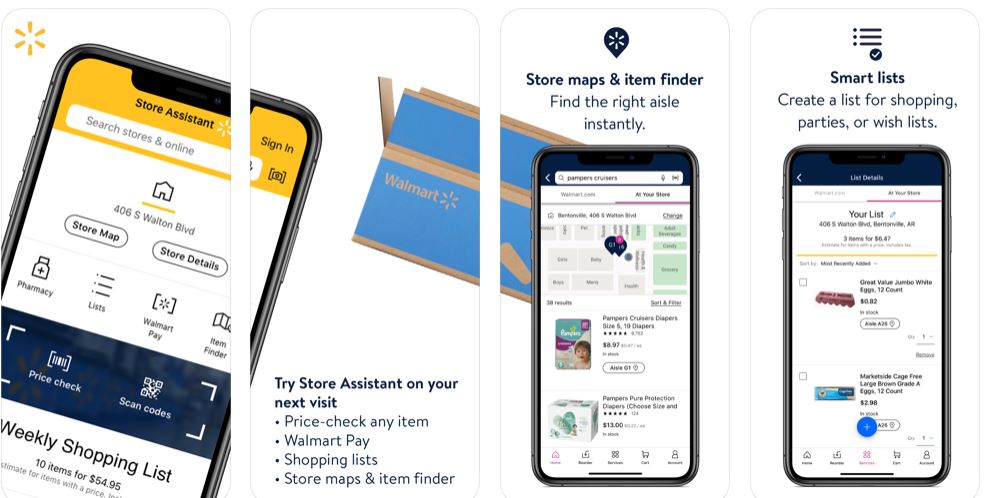
Image Source
1. Product Availability
The function informs you app users regarding the availability of the product and the product that can be purchased. And in case the selected items are already sold out, the consumer should be informed in prior about when the product will be available.
2. Price Checker
The feature helps customer to keep a track on the current selling price as well as compare the rates; this is a crucial must-have feature for any eCommerce app development.
3. Additional Product Info
Gives your customer detailed information of the product sold, also provide some useful and accurate information like customer reviews, related news, etc.
4. Similar Products
If the customer can look for related products and their functions, they can purchase what they want. This is going to cut on item returns and will assist in streamlining the management of returned merchandise.
5. Intergrate eCommerce
To have a retail mobile app, you must already be owing to an online shopping website on an eCommerce platform and syncing it with the app would be a great option.
6. Product Customization
Your users can make wiser decisions when after going through all the product they wish to buy. This reduces the considerable risk of return and exchange rate of the items.
7. Product Preview
Augmented Reality, 3D model, as well as a media technology, is used to preview the products, and this is going to increase and enhance the end-user experience. The customer can get detailed information about the product, and this also helps them to ensure that they like the product and wish to buy it.
8. Geo Location
Through the Geo-location feature, the users can seamlessly and quickly lead to your stores. You can use this feature helps to inform your app users regarding the latest offers, discounts, deals, loyalty programs when they walk near-by.
9. Social-share
You can enable your customers to socially connect with their friends and relative, and ask them about the purchase or share that with them online.
10. Payment Gateway
Platforms like Apple pay, Android pay, etc. can be integrated. Payment gateway integrations are helpful, as that provides the customers two options to pick from. And can choose the payment method according to their convenience.
11. Product Finder
In case, with your retail mobile app, when you plan on offering a massive number of items, then it is advisable, to add a smart search option to your mobile app. This will make your customers’ shopping experience a lot more convenient as they can find anything or everything under given characteristics (size, colour, collection) rather than scrolling the pages of the catalogue. Moreover, the integration of a camera-based search feature is beneficial for mobile application for offline and online retail businesses.
12. Location Based Services
It is possible to improve interaction with the customers by using iBeacons for mobile applications. As owing to this particular technology, your customer will get the information in the right place and at the right time. Through this feature in the retail apps, helps the brand to greet the customers the moment they enter their store, offer and suggest products according to their past purchases, inform them regarding exclusive deals and offers. Additionally, beacons create a practical guide, and they can also engage in in-store games for shoppers.
13. QR-code Reader
Your customers and in-store staff would prefer this Q.R. scanner in the app as they don’t require to type the name of the product manually. Users only have to scan the Q.R. code with their smartphone, and then the app provides them with the product info, shopping trends, reviews, etc.
14. Push Notifications
This feature helps the customers to keep track of the available promotions, news, offers, and they can also receive personalized offers directly from the retailers. Notifications are also interactive, and they enable users to take action, for instance, they can answer questions that too with single tap functionality. This is a great way and beneficial for the retailers to keep in touch with the users on-the-go, recognize their preferences and retarget them according to their responses.
So How Can You Get Started With Your Retail App Development?
Developing a mobile app is not at all an easy task; you need professional help from a reliable app development company who can develop an excellent app for you. So, for the same, there are two options, In-house app development and outsourcing.
1. In-house app development
You see it’s easy to create an app if you can design and develop a retail mobile app on your own, or if you have an experienced set of developers as well. Or else it will be a quite burdensome process. However, to develop an app, you not only require hire a single expert or designer but augment a dedicated team that includes UI/UX developers, designer and Q.A. tester. You also need to deal with the paid vacations, employment taxes, purchase development devices and a lot more.
2. Outsourcing
Outsourcing comes with many choices like you can hire freelancers or a mobile app and web development company, to develop a retail mobile app for you. But don’t forget to do your homework. It is always advisable to research entirely before you plan to hire a firm, like sit and talk to your app development team, make sure that the experts you are hiring are well-skilled and up-to-date knowledge of techniques in the market. Choose a firm with a good past track record so that they can provide you with flexibility & cost-effectiveness. You can also choose the company as per app complexity.
Closing Thoughts
The Walmart business model is a benchmark for retailers. They know precisely which key features to use, to generate business and streamline searches. Whether app development is being done in-house or outsourced, look, what the competition is doing right. This way you’ll get a great roadmap to getting the formula right, and ultimately paving the road to success.
Disclaimer: Please note that the content of this blog including links, texts, images, and graphics is only meant for informational purposes. We do not intend to infringe any copyright policy or do not possess any third-party material. If you have issues related to any of our content or images, kindly drop your message at info@matellio.com


